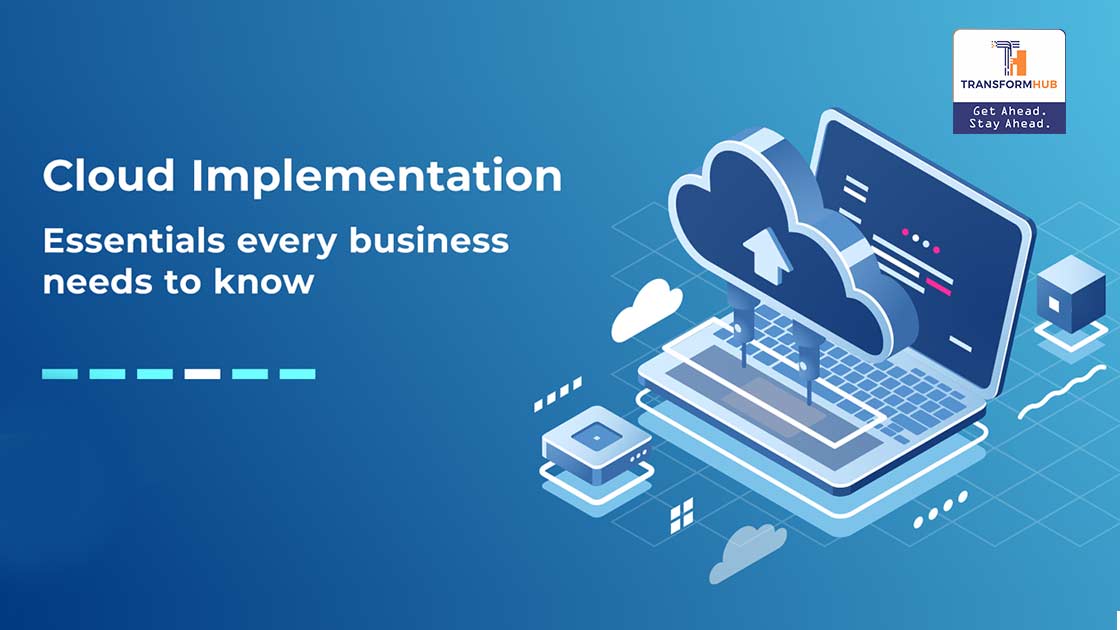The right digital framework for cloud security
The Cloud has become a significant topic in computing; however, the trend has established a new range of security issues that need to be addressed. In this blog, security perspectives for cloud technology is addressed in order to help clients' concerns and bring about awareness of the measures put in place for their services running in the Cloud.
Cloud technology is here to stay. Of course, there are concerns and risks that IT teams should anticipate during the migration. While some may be easy to mitigate, there are ways and means to prevent them and avoid cloud breaches.
During the 2019 surveys, while 80% of IT professionals mentioned lack of visibility into the entire cloud estate as a security challenge, 71% of organizations felt that majority of their cloud-resident data is sensitive and called for very stringent security measures.
Having discussed cloud essentials and the impact of cloud migration on traditional applications in my previous blogs, I now proceed towards the finale, underlining the primary cloud security concerns in this concluding blog in the cloud series.

The most common cloud security concerns include:
- Access limitations
Security teams need to provide quick and seamless access to users to enable them to connect via any device whenever they want. - Decreased visibility
Lack of visibility into the cloud environment often poses the challenge of spotting and proactively responding to cloud-based threats. - Governance limitations
Having spread across functions and departments, it is difficult to assess and monitor cloud applications consistently. - Increased complexity
A lot of organizations find themselves struggling with the new complexities cloud migration brings along. - Greater cybersecurity risk due to lack of diligence
Migrating to the cloud without understanding the full scope can compromise sensitive data and put a lot of pressure on security teams.
Irrespective of the risks and security concerns, the fact remains that enterprises worldwide have an insatiable appetite for cloud services and technologies. A much wider scope and usage are expected in the coming years.
As Per an IDC study, global spending on public cloud services and infrastructure will clock a growth rate of 22.3% taking it from $229b (£182b) in 2019 to nearly $500b (£398b) in 2023.
As Eileen Smith, programme director at IDC, points out, “Adoption of public (shared) cloud services continues to grow rapidly. Enterprises, especially in professional services, telecommunications, and retail, continue to shift from traditional application software to software-as-a-service (SaaS) and from traditional infrastructure to infrastructure-as-a-service (IaaS) to empower customer experience and operational-led digital transformation initiatives.”
All in all, we can only figure out ways to address challenges head-on to move towards a more agreeable cloud environment. Enterprises have largely adopted microservices and containers in a big way; 'build it today and use it always' being the norm.
Speaking about concerns over securing their Kubernetes-based platforms, Priyanka Sharma, GM - Cloud Native Computing Foundation (CNCF) explained, “With a lot of adoption, it’s natural that the security factors become critical because now there are suddenly very large production loads on this and the world’s starting to depend more and more on cloud-native. So, the security pieces get very important.”
According to Gartner, 75% of the organizations are facing disruptions due to infrastructure, and addressing them therefore with the right solutions and strategies is fundamental in the successful implementation of cloud technologies.
The biggest challenge for organizations is to effectively address the issues that arise due to the blending of traditional and cloud-based infrastructure. The traditional network perimeter ceases to exist making the system more vulnerable for attacks due to decreased visibility.
Cloud security in comparison with on-premise security
Until recently, sectors like banking and finance had great reliance on on-premise security. But off late, there is a huge inclination towards adopting cloud engineering services. Changing consumer expectations, emerging technologies, and now the on-going COVID-19 pandemic has all been major contributors to shifting the landscape.
They are now using the cloud engineering solutions for both ‘above the line’ and ‘below the line’ areas to create new business frontiers. They are now able to move away from conventional methods to replicate data and app services beyond a single data center or region.
What they get includes:
- Maximum scalability
- Minimum downtime
- Infinite storage capacity
- Better collaboration
- High cost-effectiveness
- More security
- Greater compliance
The right digital framework matters
With virtually all businesses going digital in the current scenario, it becomes imperative for each one to up their security measures with the help of the right digital framework. Cyberattacks are the last thing you should be worrying about as they can jeopardize your financial health, social status, and lead to major downtimes.

The right security framework will enable you to:
- Devise a risk management plan
- Create a plan for access control to protect sensitive data
- Communicate your data security preferences clearly to the service provider
- Apply appropriate controls
- Develop a vendor management program
- Create a disaster response plan
Choose the right digital specialist technology partner
What you need to understand is that security breaches rarely occur due to poor cloud data protection but due to humans in most cases. Proper controls and ethical practices need to be employed at various junctures to ensure that your data is safe. Cloud security necessitates a multifaceted approach.
The right digital specialist technology partner, or a digital transformation company, is just what you need considering the complexities and the finer security nuances cloud brings along.
The right technology partner will help you:
- Extend the same protection to all users
- Get a complete picture of the entire network
- Deploy protection 24X7 to deal with constant security updates and an extensive, inline content inspection
- Leverage purpose-built solutions to ensure secure access to users irrespective of location
- Build a secure network that prohibits third parties from intercepting data
Cloud security is not as complex as it's made out to be. All you need is the right digital technology partner who understands your needs and helps you adapt to the cloud way of working. No matter where you are in your cloud adoption journey, you can always count on my digital transformation company and my reliable team of cloud specialists at TransformHub.
We are an IT consulting services provider that offers software, cloud, and digital transformation services to help brands succeed.
That’s really all you need - to leave behind your cloud security concerns and enjoy the countless benefits of going to the cloud with assistance from an IT services company.
Share this
You May Also Like
These Related Stories

Cloud implementation essentials every business needs to know

Ways To Improve the Retail Customer Experience (CX)




